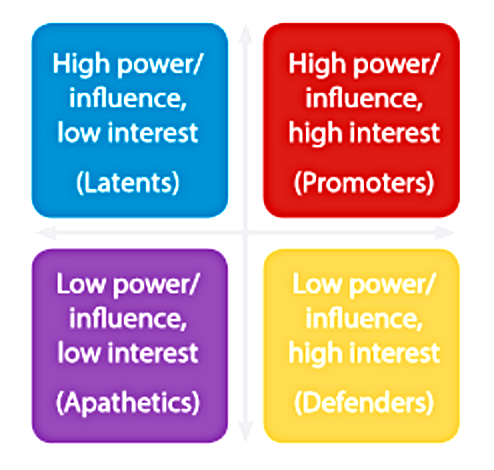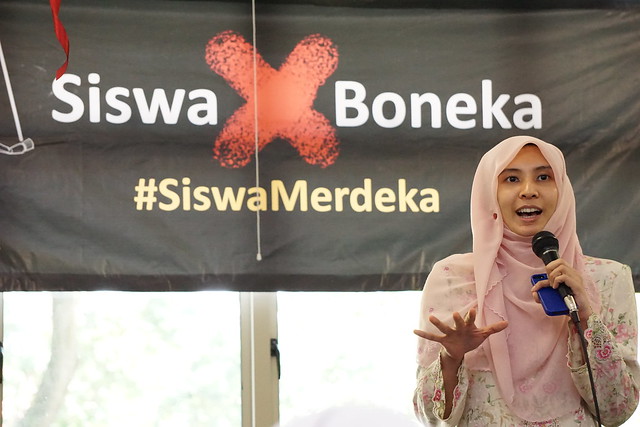
Internet Policy Research Methods for Advocacy Workshop
April 10, 2017, NLU, New Delhi. Kay Wong, shares insights from workshop on policy and legal research methods
The Internet Policy Research Methods for Advocacy Workshop was an initiative by the Annenberg School for Communication’s Internet Policy Observatory, the Centre for Internet and Society, the Centre for Communication Governance at NLU Delhi, and Digital Asia Hub to develop a research methods workshop for individuals working on digital rights issues in South Asian and Southeast Asian countries. The workshop was held at the National Law University Delhi, India from the 10th-14th of April, and brought together young scholars, activists, lawyers, and technologists for an intensive five-day practicum on using methodologically rigorous, data-driven, and contextually appropriate research for advocacy.
The workshop provided lots of insights on policy and legal research methods-- though most, are probably trivial to those more experienced in the field, for a budding young civic activist from a more technical background, it’s introduced many impactful concepts and avenues to further explore on. Here are some highlights of my take-aways from the sessions:
Stakeholder analysis
A key concept introduced was the importance of stakeholder analysis, in both research and in policy analysis. Understanding the players, rationales and power structures and being able to map stakeholders with a vested interest in a certain policy would put a focus on not just the policy outcome, but the policy process, which is beneficial against the current non-institutional and informal fora of policy making wherein relevant stakeholders are less visible.
The power of mapping stakeholders was supplemented by a presentation which provided Interesting insight into Thai cyber policy, while lending impact to the necessity of addressing stakeholder influence in policy for accountability.
A session of the workshop provided participants with methods for identifying stakeholder in practice, such as interviews with privileged informants to collect the names of representatives, or categories of stakeholders. An interactive group activity also provided participants of the workshop with practice in mapping stakeholders by groups.

You are here: Home / Updates / Internet Policy Research Methods for Advocacy Workshop
Internet Policy Research Methods for Advocacy Workshop
April 10, 2017, NLU, New Delhi. Kay Wong, shares insights from workshop on policy and legal research methods
Details
The Internet Policy Research Methods for Advocacy Workshop was an initiative by the Annenberg School for Communication’s Internet Policy Observatory, the Centre for Internet and Society, the Centre for Communication Governance at NLU Delhi, and Digital Asia Hub to develop a research methods workshop for individuals working on digital rights issues in South Asian and Southeast Asian countries. The workshop was held at the National Law University Delhi, India from the 10th-14th of April, and brought together young scholars, activists, lawyers, and technologists for an intensive five-day practicum on using methodologically rigorous, data-driven, and contextually appropriate research for advocacy.
The workshop provided lots of insights on policy and legal research methods-- though most, are probably trivial to those more experienced in the field, for a budding young civic activist from a more technical background, it’s introduced many impactful concepts and avenues to further explore on. Here are some highlights of my take-aways from the sessions:
Stakeholder analysis
A key concept introduced was the importance of stakeholder analysis, in both research and in policy analysis. Understanding the players, rationales and power structures and being able to map stakeholders with a vested interest in a certain policy would put a focus on not just the policy outcome, but the policy process, which is beneficial against the current non-institutional and informal fora of policy making wherein relevant stakeholders are less visible.
The power of mapping stakeholders was supplemented by a presentation which provided Interesting insight into Thai cyber policy, while lending impact to the necessity of addressing stakeholder influence in policy for accountability.
A session of the workshop provided participants with methods for identifying stakeholder in practice, such as interviews with privileged informants to collect the names of representatives, or categories of stakeholders. An interactive group activity also provided participants of the workshop with practice in mapping stakeholders by groups.
Advocacy impact in research
The workshop provided an avenue for the sharing of research experiences and challenges faced by participants, allowing a collaborative environment to learn from the views presented.
A concept that was often brought up was the importance of taking social and real world impact into account when designing research projects. One session provided illuminating viewpoints on the use of data in provoking discussions and placing pressure on the government in regards to public policy reform, also providing insightful tips on considerations to be taken with regards to data provenance, such as being critical in tracking the pathways and processes that may have mutated or replicated the data from the originating source.
Some key considerations in understanding one's impact objectives in their research design were also shared, such as understanding and identifying the actors in the position of power to utilise one’s research in affecting change, and brainstorming the best strategies for communicating one's research to their target audiences.
Principles of engagement with politicians
Throughout the workshop, many first hand experiences and strategies on approaching communications in politics were shared, which I felt made the idea of citizen engagement with politicians more accessible. Tips on engaging with Members of Parliament, such as the importance of being non-partisan and sounding reasonable in engaging with MPs, to consider thinking across party divides, and leveraging elections as an opportunity to engage with politicians.
Also suggested as a principle of engagement, was building formal and informal alliances with groups who feel similarly strongly about your issues, such as other civil society groups, MPs, or the press. Consistently stressed was the importance of understanding the political system, the schemes/programs in question, and of engaging with executive, judiciary or legislative groups while taking into account the strength and reach of each group.
As a principle of engagement, build formal and informal alliances with groups who feel similarly strongly about your issues, such as other civil society groups and MPs

MP Bangsar, Nurul Izzah at event promoting students right to political freedom of association and expression
MP Bangsar, Nurul Izzah at event promoting students right to political freedom of association and expression
Information control in various countries
Being able to communicate with participants from all over provided me with perspectives on the various forms that internet censorship takes in other countries. In Malaysia, internet censorship comes in the form of internet filtering, such as in restricting access to politically sensitive sites.
In India, internet shutdowns are an increasingly common form of information control for authorities as a way to constrain protests or public dissent over political, ethnic and religious tensions, and violent uprisings. The country had 31 recorded instances of internet shutdown in 2016, the highest in the world for that year.
One of the sessions on network measurement provided some findings on bandwidth throttling as a form of information control in Iran. With publicly available data from Measurement Lab (M-lab), evidence of internet bandwidth throttling during tumultuous periods such as before planned protests were found. While internet shutdowns are undesirable, they’re still remotely observable, and newsworthy. Throttling on the other hand, is a much more insidious form of information control, as some connectivity still remains. Adding to the difficulty of detection (having to distinguish throttling from ordinary routing failures), internet throttling is less newsworthy and less likely to lead to widespread condemnation.
About The Author
Kay Wong

Kay is a research intern at Sinar. She is currently pursuing her Bachelors in Computer Science with a specialisation in Data Science. She is passionate about Machine Learning and data analysis, and is currently learning more about digital rights and open source development working at Sinar. In her free time, she’s usually working on her NLP project, learning new technologies, reading, and thinking about metaresearch.
